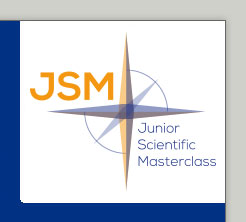Edit researchproject
In this email you'll find a link that you can use to edit the project on the website.
Only researchers that belong to the project can edit their project.
Please use the selectlist below to indicate which researcher you are. When you click the button 'Edit project', an email will be sent to the email of the selected researcher.
Project properties
| Title | DNA methylation-based sarcoma classification and therapy prediction |
|---|---|
| Keywords | soft tissue sarcoma DNA methylation signatures |
| Researchers |
Dr. J.J. de Haan Prof dr A.K.L. Reyners A.H.G. Cleven |
| Nature of the research | Determination and analysis of DNA methylation signatures in biospecimens collected in sarcoma patients in the UMCG |
| Fields of study | oncology pathology |
| Background / introduction |
|---|
|
Sarcomas represent a broad group of clinically diverse malignant tumors in which a multidisciplinary approach combining clinical, radiological and pathological features is the cornerstone for accurate diagnostic and therapeutic decision making (1). However, daily practice shows that clinical radiological as well as pathological features can overlap between different subtypes of sarcoma, and a final diagnosis and therapy protocol remains challenging in a significant amount of cases. The first line palliative systemic treatment of most sarcoma subtypes is doxorubicin. Unfortunately, the response rate of 15-20% is poor (2). Therefore, there is a large unmet clinical need to better select patients who will benefit from chemotherapy and patients who do not benefit. DNA methylation-based tumor classification has an established role in the classification of brain tumors. Recent publications demonstrate a potential role for methylation signatures in the classification of sarcomas and predicting the response to immune checkpoint inhibitors (3,4,5). Therefore we want to perform a pilot study comparing DNA methylation signatures in sarcomas of UMCG patients and in particular those patients treated with doxorubicin with good response versus poor response, with a DNA methylation database (Heidelberg University Hospital) of more than 400 different sarcomas in order to improve diagnostic and therapeutic decision making. |
| Research question / problem definition |
|---|
| What is the diagnostic and therapeutic relevance of DNA methylation signatures in selected subgroups of sarcoma patients? |
| Workplan |
|---|
| You will build an extensive robust clinical database with coded patient data (e.g. gender, age, location of tumor, size of the tumor in radiology images, follow-up outcome (responders, non-responders) of sarcoma patient cases diagnosed and treated in the UMCG with and without chemotherapy with informed consent (Oncolifes). Next, you will correlate these clinicopathological data with available methylation signatures in sarcoma samples available in the pathology UMCG archive in collaboration with the University Medical Hospital in Heidelberg, Germany. |
| References |
|---|
|
1: Gronchi A, et al. Soft tissue and visceral sarcomas: ESMO-EURACAN-GENTURIS Clinical Practice Guidelines for diagnosis, treatment and follow-up. Ann Oncol. 2021 Nov;32(11):1348-1365. 2: Judson I, et al. Doxorubicin alone versus intensified doxorubicin plus ifosfamide for first-line treatment of advanced or metastatic soft-tissue sarcoma: a randomised controlled phase 3 trial. Lancet Oncol. 2014 Apr;15(4):415-23. 3: Koelsche C, et al. Sarcoma classification by DNA methylation profiling. Nat Commun. 2021 Jan 21;12(1). 4: Starzer AM, et al. Tumor DNA methylation profiles correlate with response to anti-PD-1 immune checkpoint inhibitor monotherapy in sarcoma patients. J Immunother Cancer. 2021 Mar;9(3). 5: Boettcher M, et al. High-definition DNA methylation profiles from breast and ovarian carcinoma cell lines with differing doxorubicin resistance. PLoS One. 2010 Jun 8;5(6). |


